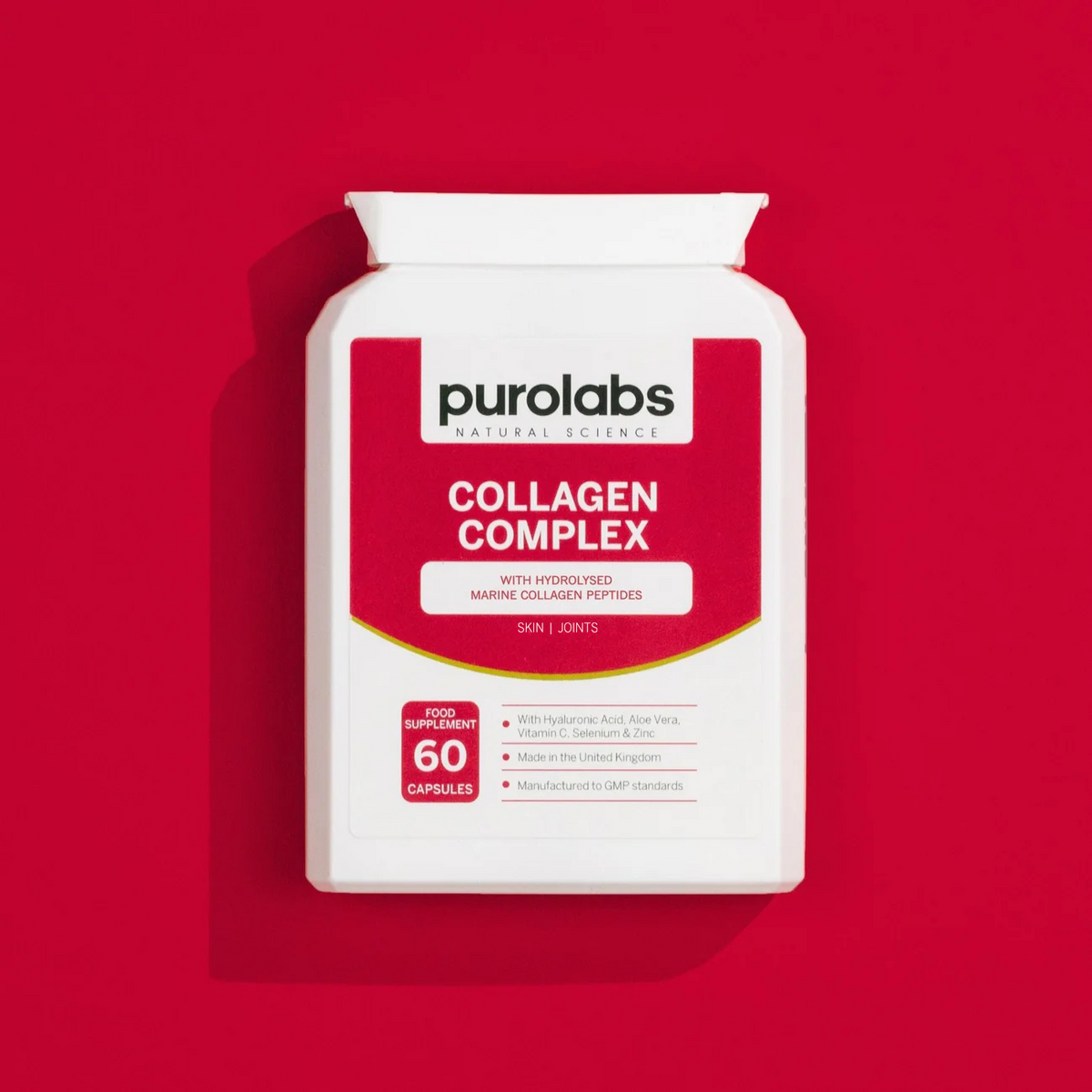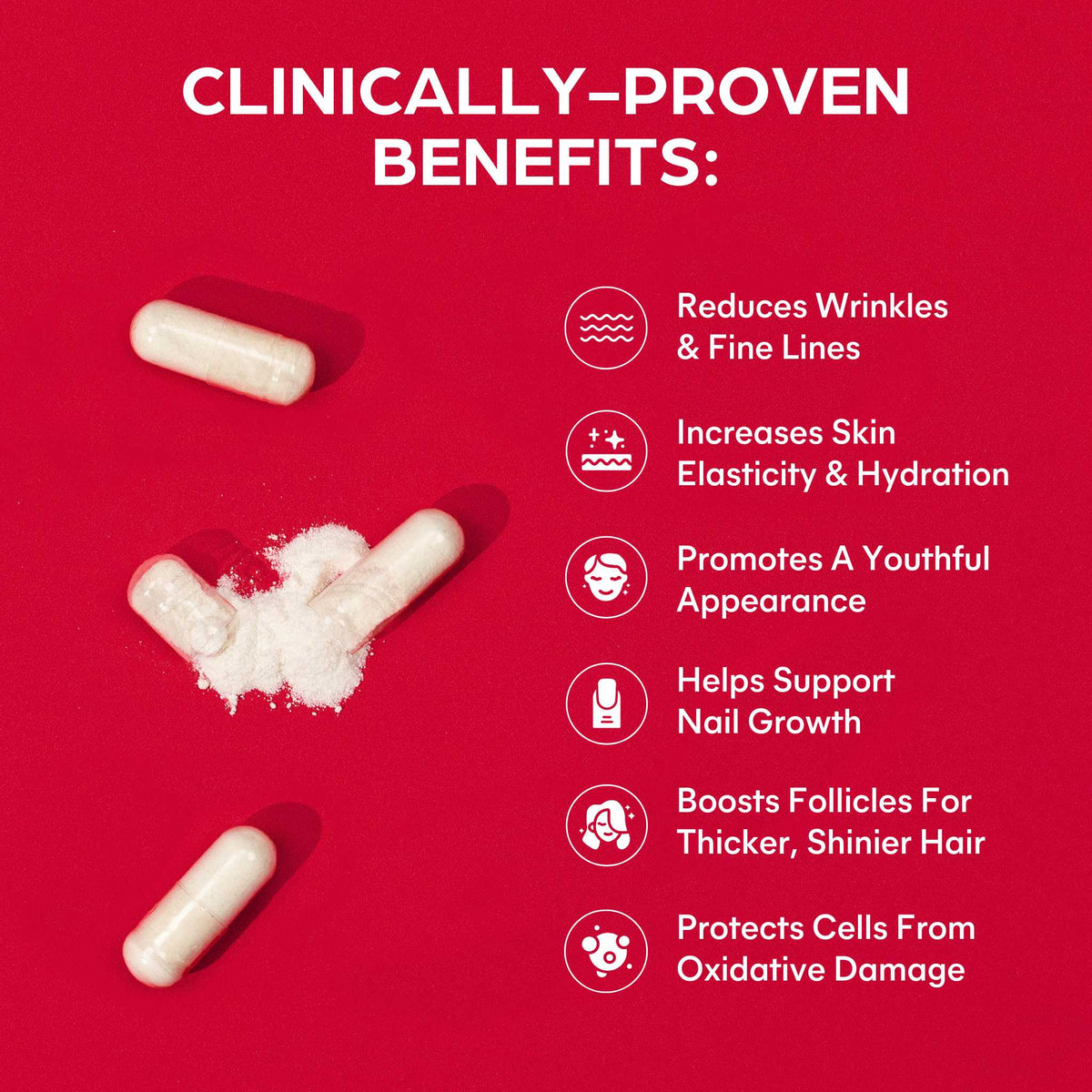Even the most health-conscious person will think little of their eye health when boosting overall health. Eye health, for the average person, only tends to become a focus and a health priority when vision changes or irritation occurs.
Eye problems can start from a surprisingly young age and slowly progress over the years. As with health in general, prevention is especially vital for the eyes. Sadly, once eye vision changes, even with medical intervention, it may be unlikely to reverse those changes.
This information is not designed to alarm you. But knowledge is power, and nutrition is incredible at helping the body to fight off and delay disease. As the body is a series of interconnected systems, if you keep yourself in good health, your eyes will generally feel the benefits.
However, for targeted eye protection, increase your intake of a few nutrients below to keep your eyes in tip-top shape.
Vitamin A
Vitamin A is the king of all nutrients when it comes to eye health.
You've heard of the old wives' tale 'eat your carrots' for eye health, and there is some truth to that. Beta carotene, a potent antioxidant which converts to retinol (a bioavailable version of vitamin A for the body), has been shown to help with night blindness, protecting the eye against dryness and irritation1 and providing vital nutrients to the eye and surrounding tissues.
Vitamin A is required for foetal brain and eye development. This nutrient is vital in adequate doses to maintain eye health from conception to our golden years2.
Food sources of vitamin A are3:
- Carrots and squashes
- Eggs
- Liver
- Grass fed butter
- Cantaloupe
A good rule of thumb when it comes to vitamin A-rich foods is to think of yellow or orange produce, which generally contains high levels of this crucial nutrient.
Zinc
Many cofactor nutrients are required to help other nutrients be absorbed and utilised effectively by the body. Zinc is an unsung hero and a significant cofactor nutrient, which helps absorb and metabolise many nutrients.
Zinc and vitamin A, especially regarding eye health, are the best of friends. Zinc helps transport vitamin A to the body's tissues, including the eyes. If you're supplementing with Vitamin A, supplement with Zinc to exponentially boost absorption and get the most out of both nutrients.
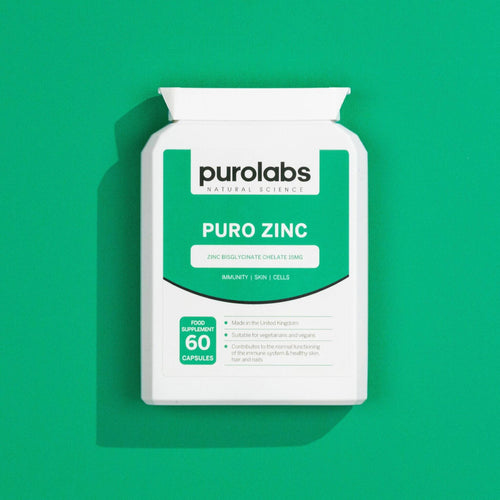
Zinc
Omega 3
Omega 3-rich fatty acids are incredibly beneficial to help prevent dry eyes. Mucous membranes cushion and lubricate our eyes to help protect them from environmental particles. Chronic dryness can lead to infection and irritation. Omega 3 can help to nourish the protective barrier and keep eyes hydrated and protected4.
Omega 3 must be obtained from dietary sources, therefore supplementing or increasing your intake of the below foods is advised:
- Fatty fish: Sardines, anchovies, herring, mackerel, salmon
- Chia seeds
- Walnuts
- Eggs
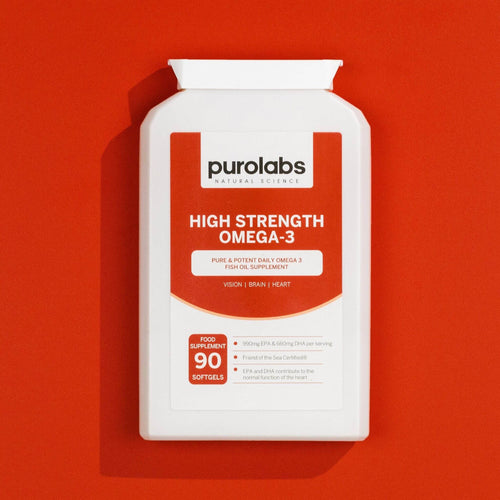
Omega-3
Riboflavin (B2)
Riboflavin is not a nutrient generally discussed regarding eye health, but its benefits should be.
Riboflavin helps prevent oxidative damage to tissues exposed to UV light, such as our skin and eyes. This nutrient is excellent for maintaining our eyes' photosensitivity and helps to protect them from environmental pollutants5.
Vitamin D
Vitamin D deficiency has long been linked to ocular and visual diseases, with studies linking vitamin D deficiency to dry eye syndrome and thyroid eye disease6.
Studies suggest that vitamin D is locally produced, activated, and regulated in the eye, directly impacting all aspects of eye health7. Calbindin, a vitamin D-produced protein, has been found in small amounts in the human retina, adding to its function8.
Vitamin D can be absorbed through our skin and converted endogenously (inside our body). But if you live in the Northern Hemisphere, especially during the colder months, it is recommended to supplement with vitamin D to ensure that you get adequate levels of the nutrient9.
You can also increase your vitamin D levels through food sources. Up your dietary intake of:
- Eggs (a running thread throughout this article!)
- Fatty fish (again, super important for eye health)
- Mushrooms
- Pork
- Beef
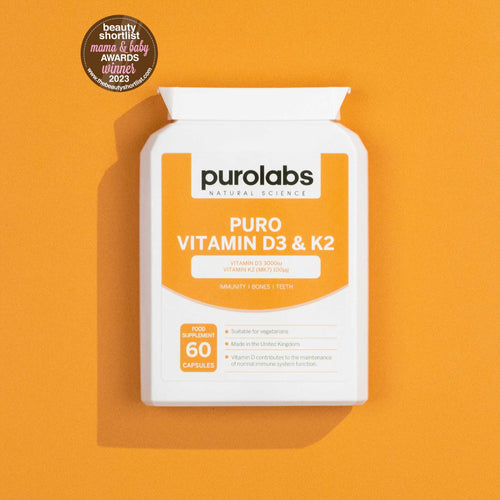
Vitamin D3 & K2
Vitamin C
Vitamin C has been shown to potentially delay the onset of cataracts, a degenerative eye disease commonly seen in older generations and found to be the leading cause of blindness globally10.
The nutrient helps transport antioxidants to the eyes to help reduce oxidative damage to the tissues, which is crucial to maintaining eye health.
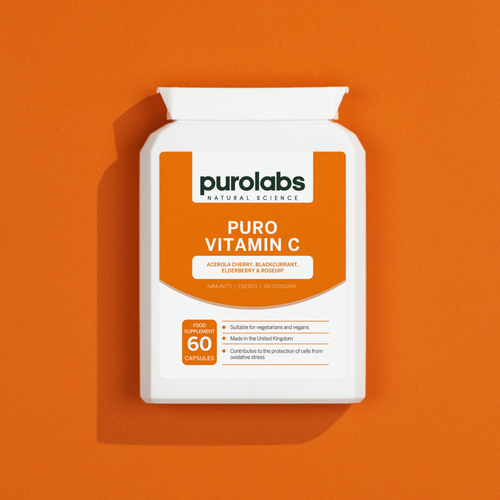
Vitamin C
Balance Blood Sugar
Although many of the nutrients outlined are powerful antioxidants required for healthy eye function and longevity, our day-to-day dietary intake quality is just as important as the nutrients we absorb.
Diabetes is a condition commonly associated with poor eye health11. Diabetic retinopathy is a chronic condition which affects the peripheral tissues and leads to poor nutrient transport to our extremities, including our eyes. Inflammation can damage blood vessels which starve the eyes of critical nutrients and leads to degenerative eye conditions. Not ideal.
To summarise, a high sugar intake increases inflammation in the body, leaving sticky sugar molecules floating around our blood, creating opportunities to stick to the inside of our blood vessels. This can lead to restricted blood flow and calcification of blood vessels. Nutrients can't reach the eyes, causing many of the issues outlined in this article.
Balancing blood sugar will go a long way to protecting your eyes over the long run, reducing the amount of sticky sugar floating around your bloodstream. Here are a few tips to help regulate your blood sugar and help keep your eyes sharp and healthy:
- Include a source of protein with every meal and vary those sources. This keeps us satiated, helping to reduce sugar cravings.
- Opt for high-fibre whole food sources. Again fibre is filling, keeps us fuller for longer and helps to pull sugar from the bloodstream.
- Reduce intake of processed foods. Sugars are hiding in pre-packaged foods, including 'savoury' dishes. Condiments are a leading culprit. Read the labels when buying packaged food products to check for sugar content.
- Taking apple cider vinegar just before a meal has been shown to help reduce the blood sugar spike that accompanies digestion. You can shoot straight-up apple cider vinegar with water. If you don't like the tangy sharp taste, you can supplement with apple cider vinegar capsules instead.
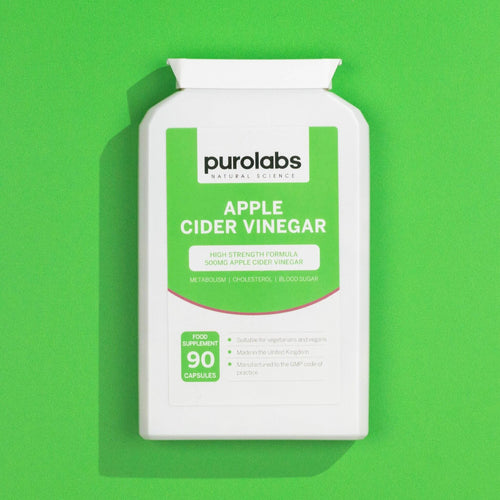
Apple Cider Vinegar
Eye conditions can take decades to develop and start at a relatively young age. Upping the above nutrients in your daily diet will help prevent or delay the onset of many degenerative eye diseases.

 Beauty
Beauty
 Bone Health
Bone Health
 Brain Health
Brain Health
 Energy
Energy
 Eye Health
Eye Health
 Gut Health
Gut Health
 Hair
Hair
 Hormonal Health
Hormonal Health
 Heart Health
Heart Health
 Immunity
Immunity
 Joints
Joints
 Menopause
Menopause
 Pregnancy
Pregnancy
 Kids
Kids
 Sleep
Sleep
 Stress & Mood
Stress & Mood





